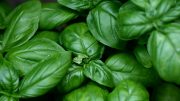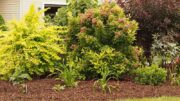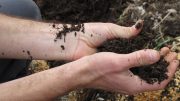2. Lettuce
Lettuce varieties such as leaf and butterhead can be harvested in 30 to 45 days. They thrive in cooler weather, making them perfect for spring or fall planting.
3. Spinach
This nutrient-dense leafy green grows rapidly, typically ready for harvest in just 4 to 6 weeks. Spinach can be planted early in the spring and even in fall for a second crop.
4. Green Onions
Also known as scallions, green onions can be harvested about 3 to 4 weeks after planting. They are versatile and can be grown from the bulbs or from kitchen scraps.
5. Beans
Both bush and pole beans grow quickly, usually maturing in 50 to 60 days. They are easy to manage and can be harvested multiple times throughout the growing season.
Easiest Vegetables to Grow
For beginner gardeners, certain vegetables are particularly forgiving and easy to cultivate.
1. Carrots
Carrots are simple to grow and require minimal maintenance. They can be direct-seeded into well-prepared soil and require consistent watering until harvest.
2. Zucchini
Zucchini is known for its prolific yield. It thrives in full sun and can be grown directly in the ground or in containers, providing harvests in about 6 to 8 weeks.
3. Cucumbers
Cucumbers prefer warm weather and can quickly produce a bountiful crop. They can be grown on trellises to save space and improve air circulation.
4. Peas
Peas are another beginner-friendly vegetable that grows well in cool conditions. They can be direct-seeded in early spring and are generally ready to harvest in 50 to 70 days.
5. Beets
Beets are easy to grow, requiring little care beyond regular watering. They can be harvested for their roots or leafy tops, offering versatility in the kitchen.
Pros and Cons of Growing in the Ground vs. Containers
Deciding between growing vegetables in the ground or in containers involves understanding the advantages and disadvantages of each method.
Growing in the ground
Pros:
Nutrient-Rich: Garden soil can support a wide range of nutrients, promoting healthy growth.
Space for Root Vegetables: Deep-rooted plants typically thrive better in soil, allowing for robust growth.
Less Frequent Watering: Ground-based gardens retain moisture longer than containers.
Cons:
Soil Quality: Poor soil can hinder plant health; amending soil may be necessary.
Weed Management: Gardens can be prone to weeds, requiring consistent maintenance.
Limited Mobility: Once established, a garden bed is static and inconvenient to relocate.



